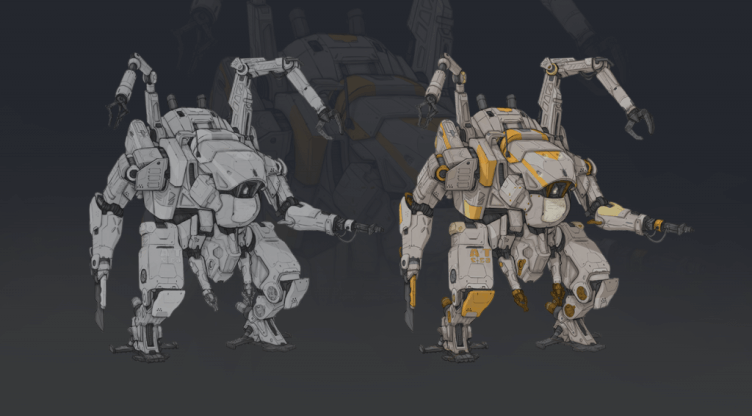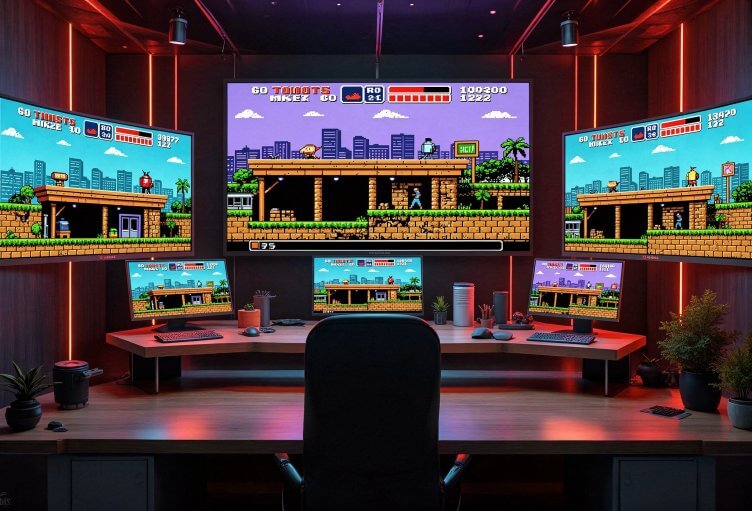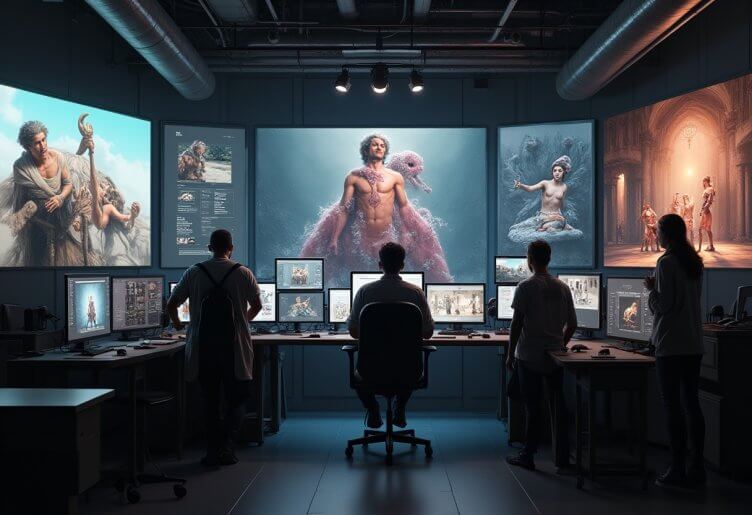The Internet of Things (IoT) has been a transformative force across various industries. From smart homes to healthcare, its influence is undeniable. In the gaming industry, This powerful technology is reshaping the landscape, allowing developers to get new experiences.
IoT technology offers a significant advantage – the ability to collect and exchange data. Imagine a game that knows when it’s hot in your room. One that senses your heartbeat quicken and quietly raises the stakes. Or rewards you for the miles you walked earlier that day. That’s not a dream feature list — it’s what happens when the physical world starts talking to your games through IoT. Real actions, real data, real feedback. The world outside the screen becomes part of the play itself.
What is the Internet of Things (IoT)?
The Internet of Things is simply everything connected — phones, watches, fridges, cars, thermostats — all sharing small pieces of information to make life smoother. Your alarm clock cues the coffee maker, your car checks the route and warms up the seats. IoT is the quiet network behind all these moments, linking objects so they can react, predict, and work together without needing you to tell them. Your fridge orders milk because you’re running low. IoT world offers an interconnected web of devices, all talking to each other and making decisions. IoT helps cities be smart with traffic lights that adapt to real-time traffic conditions and devices that navigate you through traffic jams.
In a nutshell, the Internet of Things is all about creating technologies like a massive network of devices. It’s reshaping how we live, work, and play, making the world more responsive and intelligent.

IoT in the Gaming Industry
Why is the fusion of the IoT with the gaming industry so exciting? Imagine playing a horror game where the room’s lights dim in real time as the in-game environment gets darker. Or a racing game where your room temperature rises as you drive through a desert landscape. That’s IoT working its magic in the game industry.
Games leap out of the screen with IoT and integrate with our surroundings. Your fitness tracker syncs with a game, turning your daily steps into in-game rewards. Or imagine VR games where physical objects in your room become part of the virtual world. That’s not just an immersive gaming experience; it’s revolutionary!
For game developers, IoT is how to do their work more productively and efficiently. Gaming devices collect data about players’ real-world behaviors and preferences. But again, there are always two sides to every coin. With great power comes great responsibility. Integrating IoT into gaming means handling heaps of data, and it raises questions about privacy and security.
Through the development of video game hardware and software that connected players worldwide, many new things emerged, such as the battle royale genre, the eSports sector, and platforms like Twitch. Thanks to the IoT, the industry has ways to monetize in ways they never imagined conceivable. It’s alluring since it gives games many new revenue opportunities. IoT can again play a significant role with the advent of cloud streaming because it enables publishers and developers to connect players without needing specialized hardware.

Benefits of IoT in Gaming
IoT has benefited gamers in various ways, but the most significant is that it gave them influence power, which led to a considerable change in the video game environment. Let us remind you about streaming platforms. IoT made it possible to link players worldwide to the video game Fortnite or Roblox across many platforms, including console or PC, and mobile. Or it establishes a link between the players and the viewers via online video services like Twitch and YouTube. IoT multiplies the opportunities for gamers by linking players to games, gadgets, and different platforms.
Personalized Gaming Experiences
Modern connected devices can sense far more than button presses – they notice where you are, how you move, even how you’re feeling. Games that tap into this data can react on the spot, adjusting visuals, music, or pacing to fit the player’s mood or surroundings. It turns a regular session into something more personal and alive, where every moment feels shaped around you.
Innovative Game Mechanics
Once games start talking to everyday devices, the rules change completely. Imagine a fitness app that syncs with your smartwatch and turns your steps into points, or an AR treasure hunt that reacts to the weather outside. Even your home can join in – the lights might dim automatically when your game begins, or soft music might play after a long session to help you relax.
Smarter Social play
IoT doesn’t just change solo play – it expands what’s possible between players. Global tournaments, real-time team challenges, and location-based events all become easier when devices share data instantly. Playing with friends on the other side of the world can start to feel as seamless as gaming with someone in the same room.
Improved Game Development And Real-Time Analytics
For developers, connected devices are a gold mine of insight. Every interaction tells a small story about how players move, react, and stay engaged. With sensors built into phones and wearables, studios can study this information and fine-tune mechanics or interfaces. The result is smoother gameplay and smarter updates that match how people actually play.
Extended Game Lifespan And More Immersive Experiences
Because IoT brings in real-world data nonstop, a game never has to stay static. It can evolve – adding new layers, adjusting challenges, or responding to what’s happening in the player’s world. This constant refresh keeps players interested longer and makes each session feel a little different from the last. Thanks to the Internet of Things and cloud computing, developers may now communicate with gamers directly without using traditional gaming platforms. In-cloud games can be streamed directly from a player’s device without app downloads.

Impact of IoT on Gaming Industry
Cloud gaming is where the IoT solutions play a significant role in video games. Having a chance to substitute gaming platforms like iOS, Android, PlayStation, and Xbox, will provide developers with the tools to connect and communicate with gamers directly. Since they can release and update the game immediately without obtaining platform permission, creators would gain tremendous advantages, particularly regarding development control and profitability. Additionally, the publishers avoid platform costs that are generally in the range of 30%.
Let’s be honest – IoT isn’t just about smart homes or wearables anymore. It’s quietly transforming the way games are built and played.
Every connected device leaves a small trace of player behavior – how long they stay in a level, when they take a break, what makes them come back. For developers, this is gold. It’s not guesswork anymore but real evidence of how people play. The result? Games that learn from players and adapt in ways that feel natural, not scripted.
Real-time feedback also makes production less painful. Bugs and performance drops can be caught while players are still testing, instead of weeks later. It turns development into a living process – faster, sharper, and closer to the actual player experience.
The partnership between IoT and gaming is still young, but it already points toward a future where games evolve on their own. Every update, every connected moment adds a new layer – and that’s when a game stops being a product and starts being a world that grows with you.
Challenges of IoT in Gaming Industry
While the Internet of Things (IoT) brings many opportunities to the game development company, and help create immersive gaming experiences it also has challenges.
Security Concerns
Every new device is another open door. A smartwatch, a home speaker, a motion sensor – all tiny portals that can invite trouble if left unguarded. Most breaches don’t start with a grand hack; they start with one unnoticed connection. Developers now spend almost as much time protecting data as they do designing gameplay.
Privacy Issues
IoT games listen, watch, and measure. They collect where you play, how fast your heart beats, even the sound in the room. Useful, yes – but also personal. Players deserve to know how much of themselves the game actually sees and what happens to that information afterward.
The messy tech reality
Not every gadget wants to cooperate. Old firmware, random standards, forgotten APIs – they all show up in testing. Getting a fitness tracker and a console to talk like old friends can take weeks of trial and error.
Latency and Real-Time Processing
You never think about latency until the world freezes mid-move. For IoT games, real-time means right now, not almost. A tiny delay in sensor data can turn an intense chase into a clumsy stumble.
Scalability
Ten players are easy. Ten million aren’t. Each connected device adds a heartbeat to the network, and keeping them all in sync feels a bit like conducting an orchestra that never stops playing.
Dependence on Stable Internet Connection
When the internet drops, the magic stops. IoT features depend entirely on stable connections, and there’s no graceful way to fake “real-time” when the signal blinks out. Every designer knows that panic of watching a beautiful system fall apart because of one bad router.
Design Headaches
Real-world data doesn’t care about pacing or tone. It barges in, sometimes at the wrong moment. The trick is figuring out which signals make gameplay richer and which just make it noisy. That’s more art than science.
And yes, it costs money
Security audits, compatibility tests, cloud scaling – none of it comes cheap. But when a connected game actually works, when the lights dim and the world reacts to you – it feels worth every late night and invoice.

Core Gaming Areas Where IoT Can Thrive and Rise
Games used to stop at the edge of the screen. Not anymore. With IoT, your watch, headset, and living room lights all join the party – and the game notices. It reacts, nudges, learns. Sometimes it even calms things down when you’ve had enough. That’s the real shift: play that follows you, not the other way around.
More Gameplay Options for the Players
The definition of a gaming platform is expanding fast. With IoT, a smartwatch, a smart TV, or even a lamp can become part of the experience. Games no longer live only inside consoles – they spill into everyday life, adjusting to the player’s surroundings, movement, or even heart rate. It’s gaming that meets you where you are, not the other way around.
Improved Security Measures
Security is now as central to gaming as graphics or performance. As online play and digital purchases grow, IoT systems add an extra layer of protection. End-to-end encryption and real-time monitoring help keep data secure while quietly watching for anything suspicious. The best security work in games often goes unnoticed – and that’s exactly the point.
Real-time Performance Tracking of Players
IoT devices make feedback immediate. A wearable might sense your pulse spiking mid-battle and drop the difficulty for a moment, or raise it when you’re coasting. It’s a subtle way to keep tension just right. Beyond the game itself, players can review how they react, learn patterns, and see improvement over time – turning gameplay into a personal feedback loop.
Realistic Gamification Implementation in Workouts
Fitness and gaming are finally speaking the same language. Your daily run can become a quest, your workout a level to beat. Wearables collect data and feed it directly into gameplay, rewarding every step or lift with progress on-screen. It’s an elegant trade – effort for enjoyment – and it makes staying active feel more like play than discipline.
The Gaming Industry will Witness More Players
As IoT removes barriers, more people step into the world of gaming. No longer tied to expensive hardware, players can join in from devices they already own. The result is a broader, more diverse community and a richer ecosystem of experiences. Games aren’t just something you play anymore – they’re something that moves with you, connects you, and grows alongside you.

Technology Requirement for Developing IoT Games
Gaming is evolving faster than ever – and behind that shift are a few core technologies quietly doing the heavy lifting. Cloud computing, artificial intelligence, machine learning, and data analytics now form the backbone of how connected games are built, played, and refined. Together, they make IoT gaming possible.
Cloud Computing
Cloud infrastructure gives developers something traditional servers never could – flexibility. When player traffic spikes, resources scale instantly; when it drops, costs do too. That means games stay online and responsive no matter how many people log in.
Global cloud networks also cut down latency, letting players connect from anywhere with almost no delay. Instead of maintaining bulky hardware, studios can use pay-as-you-go cloud models that save money and simplify updates.
And since IoT titles produce huge streams of data, the cloud becomes more than a server – it’s a secure vault for storing, managing, and retrieving everything from gameplay stats to user preferences.
AI and Machine Learning
This is where IoT games start to feel alive. AI models study how players move, react, and make decisions. They learn patterns – which levels frustrate, which moments delight – and adapt accordingly. A game can shift its difficulty, pacing, or even storyline on the fly, making every session feel slightly different.
Machine learning doesn’t stop at gameplay. It also drives what happens behind the scenes: creating realistic environments, generating art assets, and teaching NPCs to act more like real people. When done well, players stop noticing the code and start believing the world.
Data Analytics
All that information flowing in from connected devices becomes valuable only when it’s understood. Analytics tools help developers see what’s really happening – where players pause, what they buy, when they leave. Those insights fuel better design decisions and smarter updates.
Predictive analytics takes it further. It can spot signs of player fatigue or churn before they happen, allowing studios to tweak difficulty, introduce new rewards, or deliver the right nudge at the right time.Data also guides monetization strategies in a healthier way – keeping offers relevant, not intrusive, and ensuring that in-game purchases feel like part of the experience rather than a distraction.

Predictions for Enhanced IoT Gaming Experiences
Imagine a world where your gaming console knows when you’re about to enter the room and starts up your favorite game. Or a VR headset that adjusts its settings based on the ambient light in your room. It sounds like something out of a sci-fi movie! But with IoT, this could soon be our reality. Beyond just sight and sound, future games will engage all your senses. Feel the chill of an icy landscape through temperature-controlled wearables, or get a whiff of the virtual forest you’re exploring, thanks to scent-emitting devices. It’s immersion on a whole new level.
For game developers, IoT opens up a world of possibilities. They can now design games that interact with real-world devices, creating a more immersive and interactive gaming experience.
Virtual Reality (VR) and Augmented Reality (AR) are revolutionizing gaming. Add IoT to the mix, and we might be on the brink of entering game worlds in ways we’ve never imagined. IoT can also make gaming more eco-friendly. Devices can communicate to optimize power usage, ensuring we enjoy our games without harming the planet.
Kevuru Games Expertise in Iot Game
Our approach to IoT gaming is holistic, focusing on creating a seamless blend between the physical and virtual worlds. Gaming should be engaging and immersive. By integrating IoT, we craft players’ experiences where real-world actions have tangible impacts on the game.
With IoT, we redefine multiplayer gaming and don’t just stay confined to a console or PC. Our team develops games that interact with smart devices around you, adding a layer of realism you’ve never seen before.
As a group of professionals with extensive experience in platform-specific full-cycle development, Kevuru Games stands out in the gaming industry. Our expertise extends beyond a single console or mobile platform.
PC gaming: We provide activities that use cutting-edge hardware to produce amazing visuals, physics, and gameplay elements.
Mobile gaming: We create aesthetically pleasing games designed for touch interfaces, assuring fluid, engaging gameplay on the go.
Console gaming: Whether it’s the vibrant Xbox world, the innovative Nintendo worlds, or the PlayStation environment, we can create games that capture the spirit of each console and offer gamers experiences that are both genuine and ground-breaking.
Cloud and Streaming: We comprehend the fundamentals of cloud gaming and streaming platforms, making it possible for gamers everywhere to experience games as entertainment and a way of life.
Kevuru Games provides full-cycle game development services, including creating user-friendly user interfaces, implementing IoT technology, integrating multiplayer networks, and ensuring smooth cross-platform experiences. We can handle everything from the original idea to the updates and remakes.







